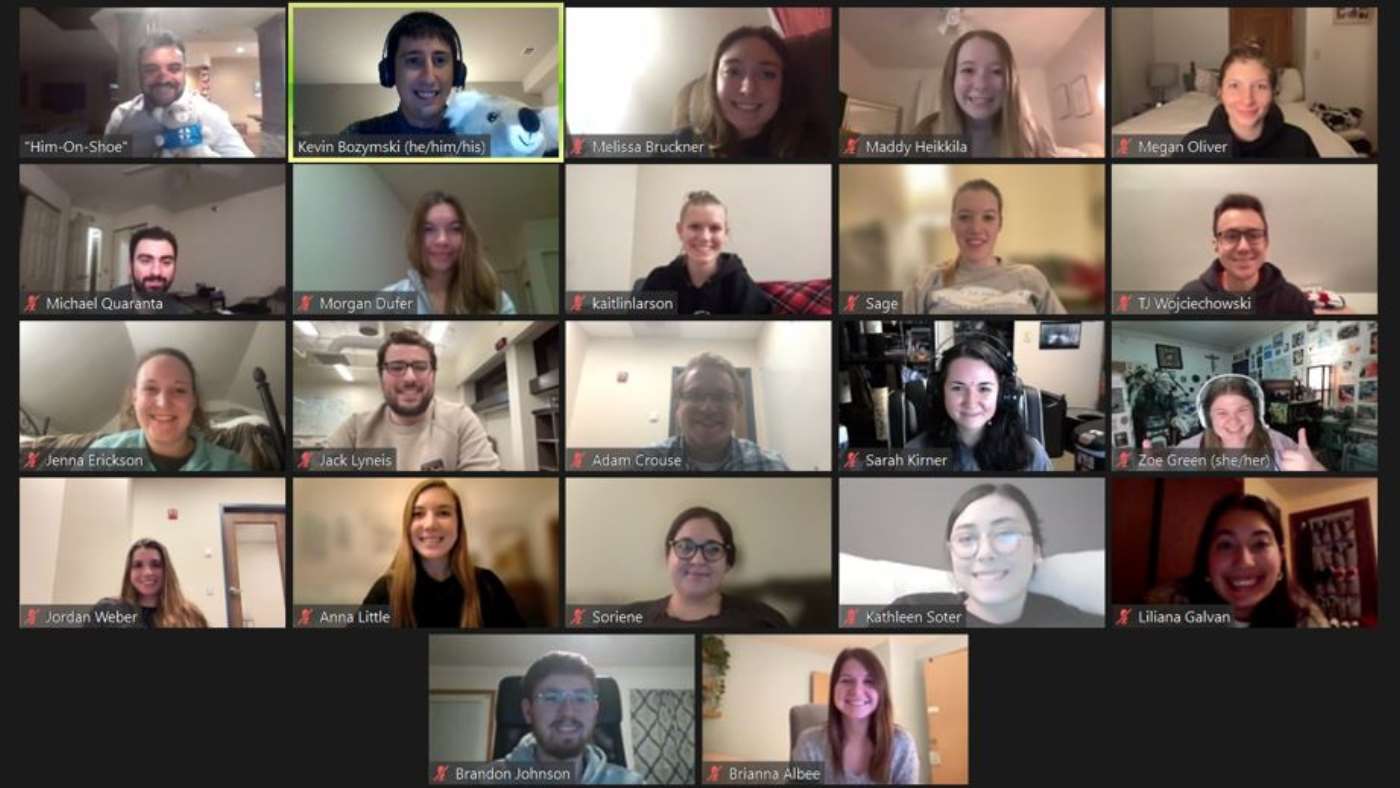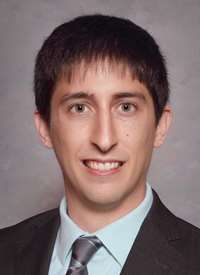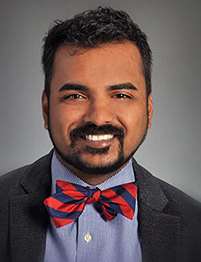'10,000 Strong' Initiative Provides Mental Health First Aid Training to Healthcare Professionals and Students

A national certification program called Mental Health First Aid prepares participants to identify and respond to signs of mental illness and substance use disorders. Since the course was brought from Australia to the U.S. in 2008, more than 3 million people have completed the training.
A goal of the Mental Health First Aid initiative is to make this training as common as CPR/First Aid certification. A Medical College of Wisconsin School of Pharmacy faculty member is helping to increase the number of those certified in Wisconsin.
Kevin Bozymski, PharmD, BCPS, BCPP, is a psychiatric pharmacist and assistant professor. He became a certified Mental Health First Aid instructor along with Himanshu Agrawal, MD, DFAPA, a psychiatrist with the Froedtert & the Medical College of Wisconsin Health Network. The two piloted the training with a group of 20 pharmacy students in 2021.
 “In looking at some of the survey data, people were using this training not just for their patients, but also for friends and family members,” said Dr. Bozymski (pictured right). “That brought us to the idea that we could really see this blossoming not just in Milwaukee, but across the state – especially in rural communities where there is a shortage of mental health professionals.”
“In looking at some of the survey data, people were using this training not just for their patients, but also for friends and family members,” said Dr. Bozymski (pictured right). “That brought us to the idea that we could really see this blossoming not just in Milwaukee, but across the state – especially in rural communities where there is a shortage of mental health professionals.”
Drs. Bozymski and Agrawal applied for grant funding from the Advancing a Healthier Wisconsin Endowment, proposing the "10,000 Strong Initiative” – exposing 10,000 people across the state to Mental Health First Aid training and creating a network of individuals that could make communities healthier.
Since securing the grant, Drs. Bozymski and Agrawal have brought this training to healthcare professionals and students at the Medical College of Wisconsin’s Milwaukee, Green Bay and Central Wisconsin campuses. They’ve also partnered with Froedtert Hospital, Children’s Wisconsin, the Clement J. Zablocki VA Medical Center, UW-Stevens Point, Northeast Wisconsin Technical College and others.
Drs. Bozymski and Agrawal conducted initial training courses, then trained and recruited additional instructors in “the good kind of pyramid scheme,” Dr. Bozymski joked. The team has grown to 10 instructors who facilitate several training courses each month.
The MCW School of Pharmacy has also added a Mental Health First Aid elective course to the curriculum.
 “There are a lot of very good training modules out there, but we chose MHFA because it is intentional in focusing on self-care and intentional on striking at stigma,” said Dr. Agrawal (pictured right). “The healthcare professionals who have trained through our AHW grant so far tend to agree that MHFA does a very good job of spotlighting these very important goals.”
“There are a lot of very good training modules out there, but we chose MHFA because it is intentional in focusing on self-care and intentional on striking at stigma,” said Dr. Agrawal (pictured right). “The healthcare professionals who have trained through our AHW grant so far tend to agree that MHFA does a very good job of spotlighting these very important goals.”
The seven-hour training highlights why an imperfect response is better than no response when it comes to a mental health crisis or challenge. It includes foundational work to understand the framework to use in a crisis, which includes assessing the risk, listening non-judgmentally, giving reassurance and information, and encouraging professional or self-help and other resources. Then, participants watch videos and practice applying the framework to different scenarios.
“Many participants don’t have a mental health background, so giving them the space to work through some of those uncomfortable conversations in a safe space is important,” said Dr. Bozymski. “While we can’t fully simulate being there with someone who’s in a crisis, hopefully talking through multiple examples will help take a little of the edge off when it does come up and you’re trying to help someone through it.”
To understand the impact of the 10,000 Strong Initiative, instructors conduct a pre-training and post-training survey. “This helps us understand: Does this program not only give you the tools to help someone – but does it also impact your attitudes about mental health? As we know, stigma is such a barrier, even subconsciously, for people,” said Dr. Bozymski.
According to the Mental Health First Aid website, almost 52,000 people have completed Mental Health First Aid training in Wisconsin.


